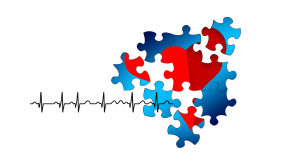Articles By David Liew, FRACP

Why I love the late breaking abstracts
Every year I love the late breaking abstracts. It’s consistently my favourite part of the meeting program, by some distance. Here's why you should love them, too.
Read Article
Where are we at with PD-1 agonism?
Promising novel mechanisms of action always create excitement, but the immune checkpoint PD-1 has cemented itself in the news far more than most. This fame is primarily from therapeutic inhibition in cancer and rheumatological inflammatory sequelae that emerge, but invoking the inverse and using PD-1 agonism to treat classical autoimmunity has subsequently been making its own mark. Given the evident plausibility, how do we feel about invoking the opposite and agonising PD-1 in classical autoimmunity?
Read Article
Stopping therapy in GCA
They say the easiest bit about GCA, like PMR, is the first week after you start steroids. Those fond memories belie the challenge of ongoing treatment in GCA. In a steroid-only world, there is only misery. Steroid-sparing therapies have changed this completely.
Read Article
ICYMI: Secukinumab promise in PMR is real
Choice is not just good, it is often necessary, and secukinumab promises just that in both PMR and GCA.
Read Article
What we need in very early arthritis
It's easy to think that in our current world that we've done it all for rheumatoid arthritis, that there's nothing left to be done after b/tsDMARDs have become relatively widespread and accessible. If we aren’t satisfied that we’ve done all we can for our RA patients, how can we make their treatment and their lives better?
Read Article
What would it take for JAKs to ROCK the boat?
JAK inhibitors have taken a beating over the last three years. The excitement and potential has been tempered by mounting cardiovascular safety concerns, but specifically in at-risk patients, compared to TNF inhibitors. So it is an intriguing idea to pair JAK inhibitors with something that might have a cardioprotective effect. It is therefore worth excitement that we have a therapeutic option to follow which does just that. At EULAR 2025, we have seen phase 2 results for CPL’116, and a simultaneous publication in The Lancet Rheumatology.
Read Article
Secukinumab promise in PMR is real
Choice is not just good, it is often necessary, and secukinumab promises just that in both PMR and GCA.
Read Article
Will the Robots Save Ultrasound?
Despite all its benefits, ultrasound’s daily clinical use remains the domain of only a subset of interested rheumatologists. If the benefits are so clear, then why is it not universal? In the late-breaking oral abstracts at ACR Convergence, the final abstract presentation was from the Danish rheumatologists behind ARTHUR and DIANA: the robot which holds the MSK ultrasound probe, and the artificial intelligence brains which empowers it. Perhaps the robots will save us?
Read Article
Ozempic will change rheumatology
Many of our diseases are made worse by obesity, notably rheumatoid arthritis, psoriatic arthritis, and osteoarthritis. Much of the refractory pain and suffering from these conditions might be attributable to obesity, so active questions will be raised about how GLP-1 agonists can influence the diseases we treat.
Read Article
JAK inhibitors in GCA?
The SELECT-GCA study, looking at upadacitinib in GCA, anchored the ACR 2024 opening plenary for a reason - it is highly notable and badly needed.
Read Article



